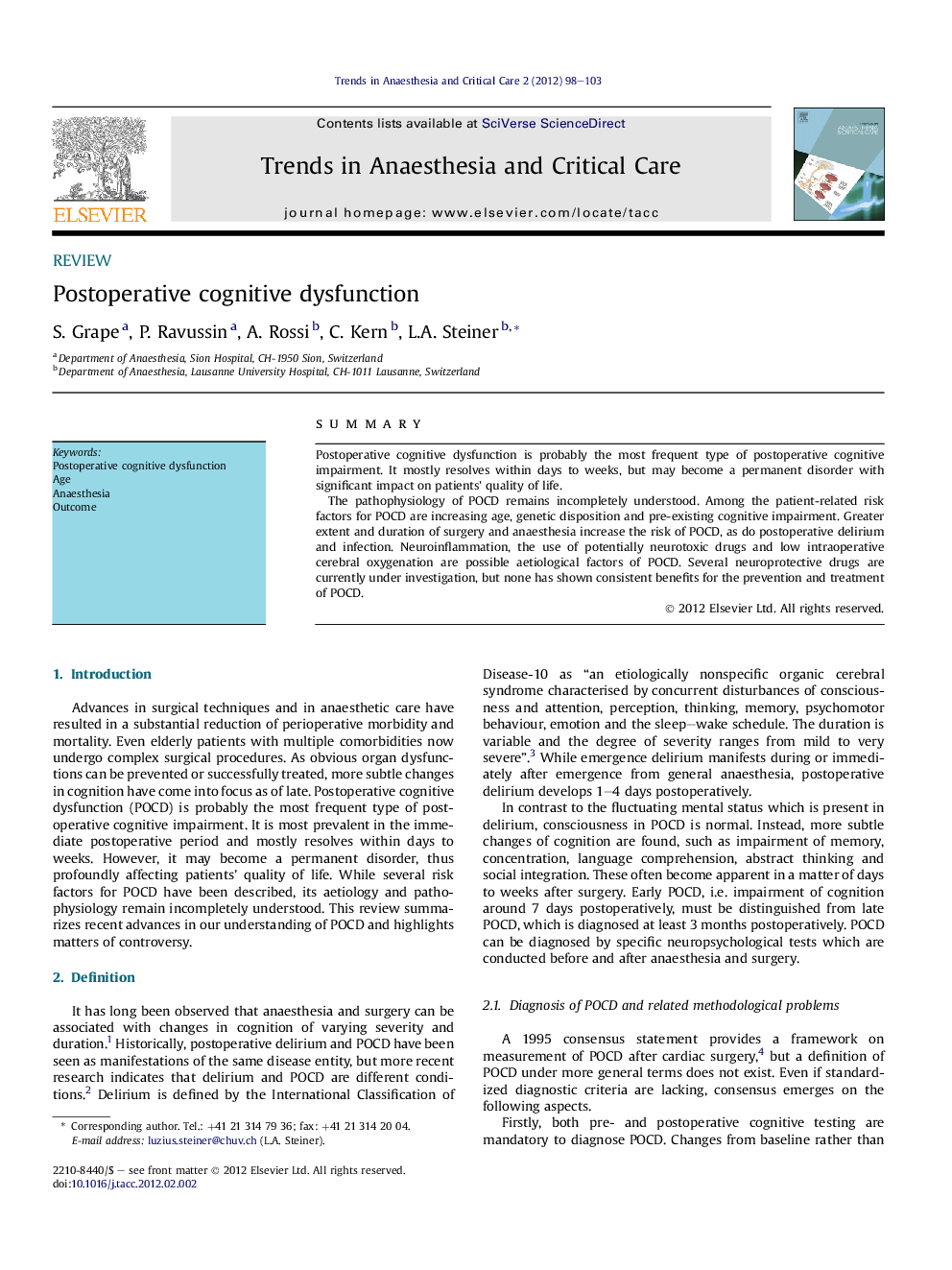| Article ID | Journal | Published Year | Pages | File Type |
|---|---|---|---|---|
| 2772635 | Trends in Anaesthesia and Critical Care | 2012 | 6 Pages |
SummaryPostoperative cognitive dysfunction is probably the most frequent type of postoperative cognitive impairment. It mostly resolves within days to weeks, but may become a permanent disorder with significant impact on patients’ quality of life.The pathophysiology of POCD remains incompletely understood. Among the patient-related risk factors for POCD are increasing age, genetic disposition and pre-existing cognitive impairment. Greater extent and duration of surgery and anaesthesia increase the risk of POCD, as do postoperative delirium and infection. Neuroinflammation, the use of potentially neurotoxic drugs and low intraoperative cerebral oxygenation are possible aetiological factors of POCD. Several neuroprotective drugs are currently under investigation, but none has shown consistent benefits for the prevention and treatment of POCD.
